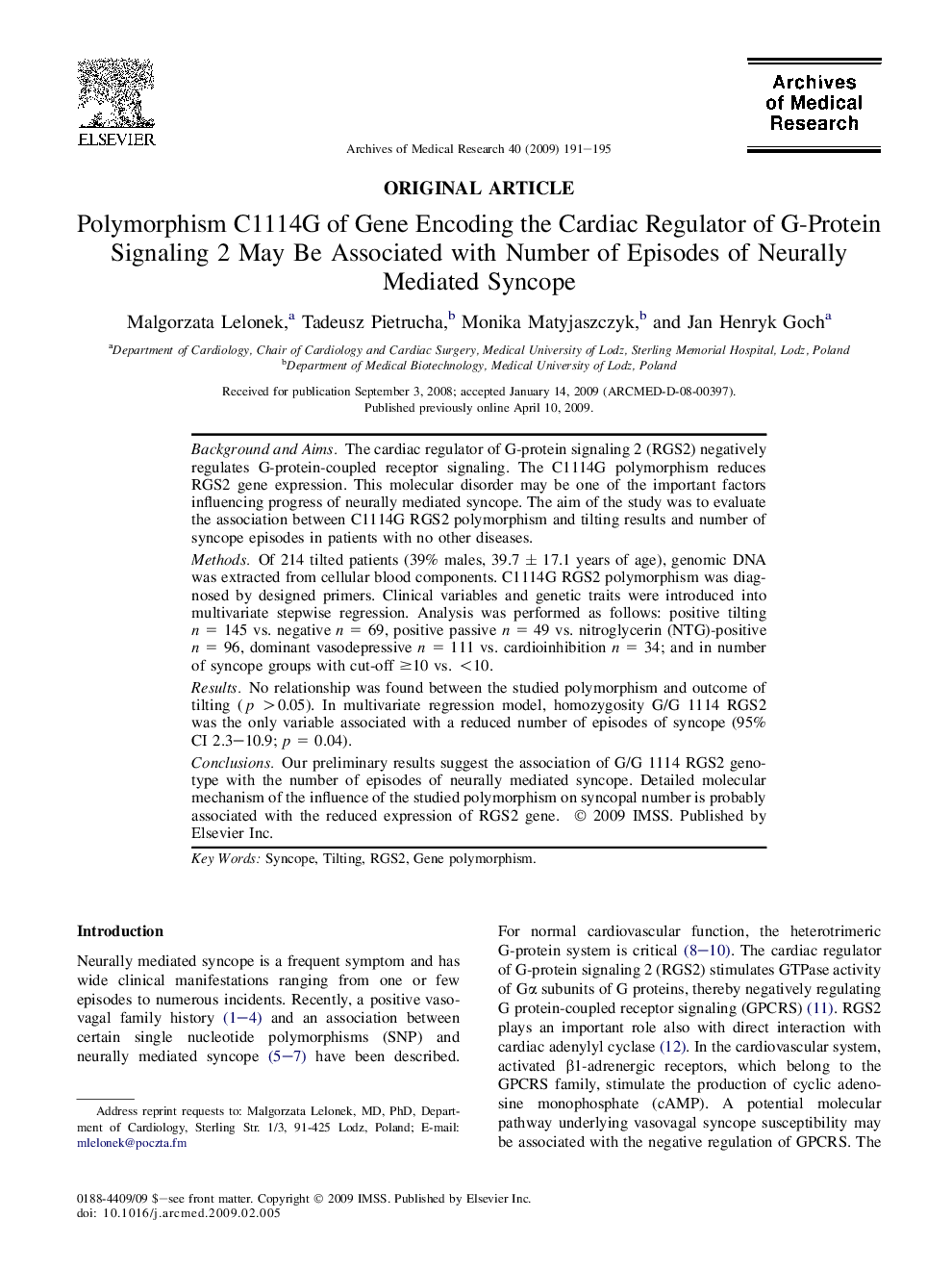| Article ID | Journal | Published Year | Pages | File Type |
|---|---|---|---|---|
| 3447118 | Archives of Medical Research | 2009 | 5 Pages |
Background and AimsThe cardiac regulator of G-protein signaling 2 (RGS2) negatively regulates G-protein-coupled receptor signaling. The C1114G polymorphism reduces RGS2 gene expression. This molecular disorder may be one of the important factors influencing progress of neurally mediated syncope. The aim of the study was to evaluate the association between C1114G RGS2 polymorphism and tilting results and number of syncope episodes in patients with no other diseases.MethodsOf 214 tilted patients (39% males, 39.7 ± 17.1 years of age), genomic DNA was extracted from cellular blood components. C1114G RGS2 polymorphism was diagnosed by designed primers. Clinical variables and genetic traits were introduced into multivariate stepwise regression. Analysis was performed as follows: positive tilting n = 145 vs. negative n = 69, positive passive n = 49 vs. nitroglycerin (NTG)-positive n = 96, dominant vasodepressive n = 111 vs. cardioinhibition n = 34; and in number of syncope groups with cut-off ≥10 vs. <10.ResultsNo relationship was found between the studied polymorphism and outcome of tilting (p >0.05). In multivariate regression model, homozygosity G/G 1114 RGS2 was the only variable associated with a reduced number of episodes of syncope (95% CI 2.3–10.9; p = 0.04).ConclusionsOur preliminary results suggest the association of G/G 1114 RGS2 genotype with the number of episodes of neurally mediated syncope. Detailed molecular mechanism of the influence of the studied polymorphism on syncopal number is probably associated with the reduced expression of RGS2 gene.
